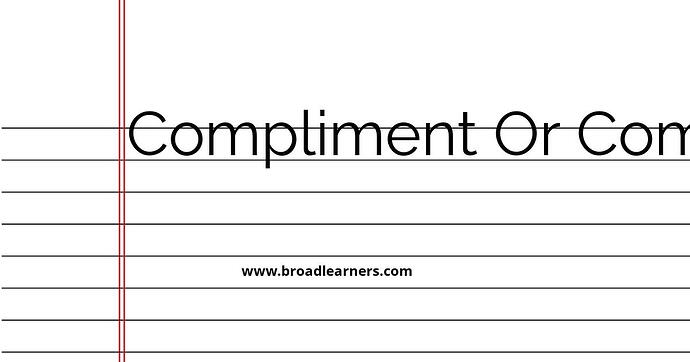'Compliment', 'complement', and 'compliment' are commonly confused words in English grammar. Understanding the difference between these words is important to use them correctly in written and spoken English.
'Compliment' is a noun or a verb that means expressing praise, admiration, or approval towards someone or something.
'Complement' is a noun or a verb that means something that completes or enhances something else, or to go well with something.
'Compliment' is a verb that means to give praise or admiration to someone.
Let's take a closer look at the meanings and usage of 'compliment', 'complement', and 'compliment'.
| 'Compliment' | 'Complement' | 'Compliment' |
|---|---|---|
| The word 'compliment' is a noun or a verb that means expressing praise, admiration, or approval towards someone or something. | The word 'complement' is a noun or a verb that means something that completes or enhances something else, or to go well with something. | The word 'compliment' is a verb that means to give praise or admiration to someone. |
|
|
|
To remember the difference between 'compliment', 'complement', and 'compliment', it can be helpful to remember:
- 'Compliment' has an 'i' in it and is about expressing praise or admiration towards someone.
- 'Complement' has an 'e' in it and is about something that completes or enhances something else.
- 'Compliment' is a verb that means to give praise or admiration to someone.
Here are some examples of correct usage:
- She received a compliment on her performance.
- The colors in the painting complement each other.
- He complimented her on her cooking skills.
Remembering the correct usage of 'compliment', 'complement', and 'compliment' will improve your grammar and communication skills.
